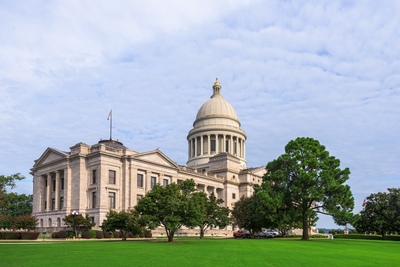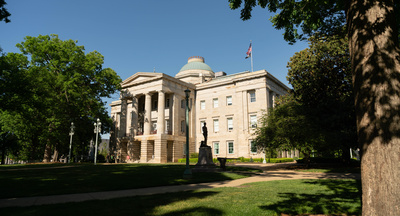Because 2017 is an off-year for most legislative elections (other than New Jersey and Virginia), much of the focus on this election season will turn to state ballot measures. There will be 27 ballot measures before voters this fall, the lowest number of ballot measures since 1947, according to
Ballotpedia. Our first look at these ballot measures will focus on proposals meant to change the way government operates.
New York Proposal 1
Ballot Title:
“Shall there be a convention to revise the Constitution and amend the same?” New York voters will determine whether the state should hold a constitutional convention,
the first since 1967. By state law, voters can decide to hold a constitutional convention every 20 years. Voters declined to hold one in a 1997 vote, and if they decline the opportunity again this year, the next vote won’t be until 2037.
If voters approve a convention, it will be held in April 2019 with 63 elected delegates — three from each state senate district, plus 15 at-large delegates. The delegates would be elected in 2018 and could propose any amendments to the state constitution. If delegates approve a proposal with a simple majority vote, the proposal goes before voters in November 2019.
According to a
Siena College poll in September, 45 percent of voters approve of holding a constitutional convention, compared to 33 percent opposed, with still 22 percent undecided. Backers of a potential convention
include good government activists like the group
Citizens Union and some
abortion-rights activists hoping to prevent any erosion of
Roe v. Wade.
However, many elected officials from both sides of the aisle oppose the measure, including Majority Leader of the State Senate John Flanagan (R) and Speaker of the Assembly Carl Heastie (D). New York City Mayor Bill de Blasio (D) is against the convention, but Governor Andrew Cuomo (D) has
expressed support for a convention so long as delegates aren’t dominated by elected officials who would protect the status quo.
The main opposition comes from a group called New Yorkers Against Corruption, a
diverse group made of both liberal and conservative groups, unions, guns-rights advocates, environmental advocates, and the New York Civil Liberties Union. The group has
almost doubled the amount spent by supporters in campaigning against the measure.
Texas Proposition 3
Ballot Title:
“The constitutional amendment limiting the service of certain officeholders appointed by the governor and confirmed by the senate after the expiration of the person’s term of office.” In November, Texas voters will decide how long certain political appointees will stay in office under Proposition 3. Under
Article 16 of the Texas Constitution, all officers “shall continue to perform the duties of their offices until their successors shall be duly qualified.” These “holdover appointments” can be a problem if the slow, bureaucratic appointment and approval process allows appointees from a previous administration to affect policies for many years after the expiration of their term.
As of May 2016, Governor Greg Abbott (R) still had
over 300 appointees who were holdovers from the previous administration before he took office in 2015. Conservative groups
wrote to Abbott, pointing out that half of the members of the Texas Ethics Commission were serving on expired terms, including one member who had been serving five years beyond his term. With over 3,000 potential appointees, it can take time for a governor to fill the backlog.
Proposition 3 would exempt non-salaried officers from the holdover provision, requiring them to end their terms on the last day of the legislature's regular session that begins after their term's expiration. This would create vacancies until the position is filled by appointment, but by having the term end at the end of the legislative session, it could give the governor time to appoint a replacement and the legislature time to confirm. There are
no registered ballot committees expressing support or opposition to this measure.
Texas Proposition 4
Ballot Title:
“The constitutional amendment authorizing the legislature to require a court to provide notice to the attorney general of a challenge to the constitutionality of a state statute and authorizing the legislature to prescribe a waiting period before the court may enter a judgment holding the statute unconstitutional.” Additionally, Texas voters will decide in November whether the state attorney general should be notified any time a state law's constitutionality is challenged in court. The amendment would also require judges to wait at least 45 days after notice is given before issuing a ruling. The Texas Legislature already enacted these provisions
in statutory form in 2011. However, the Texas Court of Criminal Appeals
ruled that the 45 days notice requirement violated Article 2 of the state constitution
The proposed amendment would give the state a greater chance to defend state laws against constitutional challenges. The new law would affect cases filed after January 1, 2018. According to the Texas House Research Organization, the amendment
could violate the separation of powers doctrine by requiring judges to wait 45 days before issuing a ruling. There may also be concern of interference from the state attorney general’s office for criminal cases, in which there would already be a prosecutor representing the state. There are
no ballot measure committees registered to express support or opposition to the measure.




